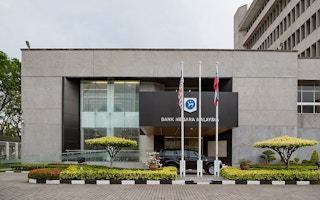Value-based intermediation (VBI) is a set of guidelines formulated by Bank Negara Malaysia (BNM), the Malaysian central bank, for the domestic Islamic banking industry.
As a concept rooted in values-based banking, VBI promotes real economic activities resulting in positive social and environmental benefits to a range of stakeholders. In this sense, VBI is seen as a natural progression for Islamic banking given that its Shariah fundamentals are very much in line with the goals of secular sustainable finance.
While the introduction of VBI is a step in the right direction, BNM’s approach to its execution is misconceived. For one, it is being promoted to Islamic banks primarily as a novel competitive strategy to rejuvenate slumping growth rates in the industry — when the emphasis should be on adopting sustainability as the principal measure of business success.
But more importantly, BNM’s trust in banks is misplaced. It has taken a soft stance on the implementation of VBI, allowing for indefinite timelines and loose interpretations. Such instituting of broad measures leaves open the prospect of greenwashing and ineffectiveness.
Formal regulation, on the other hand, promises to accelerate the transition towards sustainability through explicit objectives and strong incentives for the private sector to comply.
Beyond regulation — be it moral suasion or formal legalistic controls — the proposed evolution of Islamic banking into VBI is a litmus test for bank leaders to take up the ineluctable modern challenge of doing business responsibly
More broadly, the convergence of standard modi operandi with those espoused by values-based banking should become a long-term business imperative for sensible financial stewards everywhere in the world.
Inspiration
Values-based banking — defined by the Global Alliance for Banking on Values (GABV) at its founding in 2009 — is a precursor to VBI. Over ten years on, GABV is an alliance of 63 financial institutions with more than $210 billion of combined assets under management.
Corporate decisions at any financial institution that subscribes to values-based banking are guided by a set of principles that centre around real economy, social welfare, environmental impact and transparency.
The evidence gathered by GABV over the recent decade proves that values-based banking is beneficial in a number of practical ways. Not only do such banks contribute to social betterment and protection of the natural environment, but their focus on the real economy results in more consistent financial returns and greater resilience in the face of economic challenges. They have also been able to expand more meaningfully over the years to add to their various impacts.
Despite the strong business case for values-based banking, the model is still profoundly unpopular on a global scale. To a degree, it is because the virtues of values-based banking are still unknown to many practitioners.
But equally evident is the financial industry’s resistance to this knowledge even when it becomes available. There are also other reasons at play, mainly the complacency of bank executives and boards who cling to the shareholder-centric perspective in defense of existing benefit plans.
Motives
Originally, VBI was an idea devised by the industry to revitalise slumping growth rates in Islamic banking, from the high teens in the years following the global financial crisis to single digits recently.
In the face of stagnating performance, sustainable banking — an increasingly favoured alternative across capitalist economies — was regarded as an existential opportunity to leverage.
With an impetus from the industry, the Malaysian regulator jumped on the sustainable banking bandwagon in late 2017. Early movers included Bangladesh, China, Indonesia, Mexico, Nigeria, Turkey, among other founding members of the supranational Sustainable Banking Network that was set up in 2012. BNM was assisted in its early efforts by a group of nine Islamic banks which then formed the VBI Community of Practitioners.
Since then, most local Islamic banks have initiated internal processes to implement recommendations set by VBI. They have committed to the new framework and publicised small funding programmes meant for green and social projects. The big question now is whether their public intentions will turn into real action with VBI shaping all financing and investment decisions.
Light-handed regulation augurs ill for execution
Islamic bankers appear convinced that VBI as a model is more expensive to run and may undermine their competitive standing. To allay such concerns, BNM recommends that withdrawal of funds from unsustainable projects is deferred in favour of more lenient ‘monitoring and assessment’.
Simultaneously, it tries to convince the skeptics that, from a risk management perspective, VBI is more of a necessity rather than a choice. Sustainable banking is also described as a doorway to fresh investment flows and new clients.
For now, the central bank has left much of the implementation specifics up to the discretion of individual banks. No doubt with some nudging by the inherently biased Community of Practitioners, it chose to permit VBI principles “to be adopted and implemented based on each Islamic banking institution’s readiness”, instead of producing more authoritative directives.
While there is some merit in respecting singular differences between banks as far as their financial condition is concerned, the regulatory approach ought to be less laissez-faire and more proactive to ensure faster progress is made on topical matters such as the incorporation of social and environmental criteria in performance measurement and risk management.
China, a leading peer in sustainable finance circles, has learnt it the hard way. Its quasi-regulatory initiative — started in 2007 and enhanced in 2012 — proved to be largely ineffective in the initial phases when reporting was voluntary.
More stringent standards had to be enacted consequently which made disclosure mandatory. It is believed that banks only gain by fulfilling the reporting obligations, seeing how it leads to reduced information asymmetry.
Moreover, the explicit inclusion of a mandate to promote sustainable development in BNM’s case justifies a mandatory policy on VBI; the central bank also has an objective to promote sustainability in line with national targets.
Regulatory authorities in several countries — including Bangladesh, Brazil, China, Indonesia, Nigeria, Pakistan, Peru and the Philippines — have set a precedent by requiring financial institutions to formalise and implement sustainable banking principles.
The roles of financial regulators are evolving. Given the challenges of today and tomorrow, they are expected to be more involved in effecting forward-looking mitigation strategies.
Economic wisdom has it that the proactive approach to policymaking is well suited for rule-based systems in emerging markets and developing countries. On the other hand, informal or market-driven approaches that leave the uptake to be voluntary should complement, not replace, full-fledged regulation to create a truly enabling environment for sustainable businesses.
In addition to the ambiguity in the text on implementation, there is certain equivocacy on the Shariah aspect of VBI influenced operations. Banks have been given the freedom to interpret Shariah in any manner they deem fit — based on their “perspectives on ethics, articulated vision and risk appetite” — when setting transformation priorities.
This individual self-determination might allow Islamic banks leeway to apply juristic rulings selectively, possibly in order to authorise those VBI practices that cost the least to realise. But the greater expense under such scenarios may be lost innovation linked to sustainable banking opportunities.
A challenge to scale up
VBI is meant exclusively for Islamic banks. The latter, however, still comprise a relatively small portion of the total market — 28 per cent of banking assets in Malaysia and 35 per cent of all lending at end-2019 — after nearly four decades since the establishment of the first Shariah compliant financial institution.
Globally, Islamic banks hold a bit over $1.7 trillion — a drop in the ocean compared to the overall banking industry last estimated at $124 trillion.
It can be argued then that the potential impact from VBI is not going to be material in the grand scheme of things. It would help if Islamic banks started taking up more space to enable international expansion.
Larger, more consequential financial institutions’ practicing of VBI would add to the credibility and recognition of the new system in Malaysia and beyond. BNM has been touting the idea of a ‘mega’ Islamic bank for a long time now but it is yet to materialise, after at least three failed attempts among banks to merge. Instead, Indonesia may be taking the lead on this one.
Ultimately, however, since the ideas underlying VBI are universal on the whole, the possibility of the same principles taking hold among conventional banks is not too far-fetched. In fact, as long as conventional banks remain unintegrated into the sustainability movement, the transition to VBI may prove difficult for their Islamic financial subsidiaries.
The Malaysian regulator seems to be taking steps towards instituting a comparable framework for conventional banks. It plans to issue a values-based taxonomy for activities that are supportive of climate change objectives as early as next year.
To that end, the risk management system developed for the purposes of VBI could become a pacesetter for any regular financial institution interested in remodelling along similar lines.
For now, Islamic bankers are pinning their hopes on a pivot towards sustainable finance to get the industry back to double-digit growth.
But Malaysia’s VBI could potentially develop into something much bigger: the means through which sustainable finance turns mainstream across the Islamic world, given the prominent role the country occupies in the Shariah-compliant finance industry globally.
The successful implementation of VBI in practice, however, depends to a large extent on holding individual financial institutions more accountable. Indispensable in this regard is firm and coherent regulation. The onus is on BNM to set higher standards for sustainable finance in the country beyond good practices.
Gulzhan Musaeva is a financial analyst who writes about high-growth companies, responsible investing and enablers of sustainability.


















